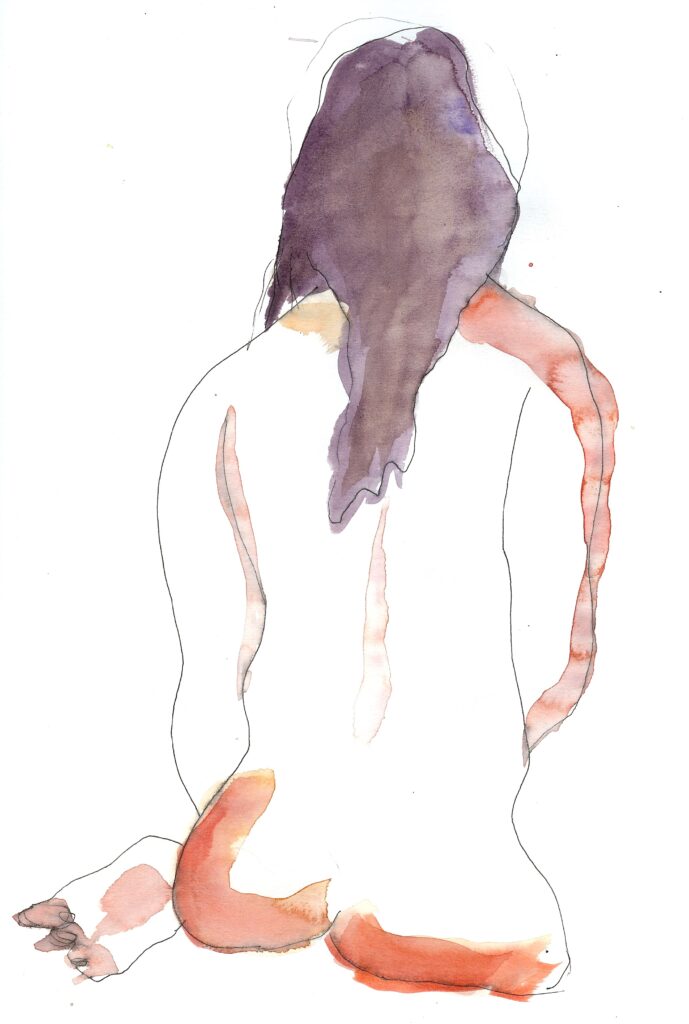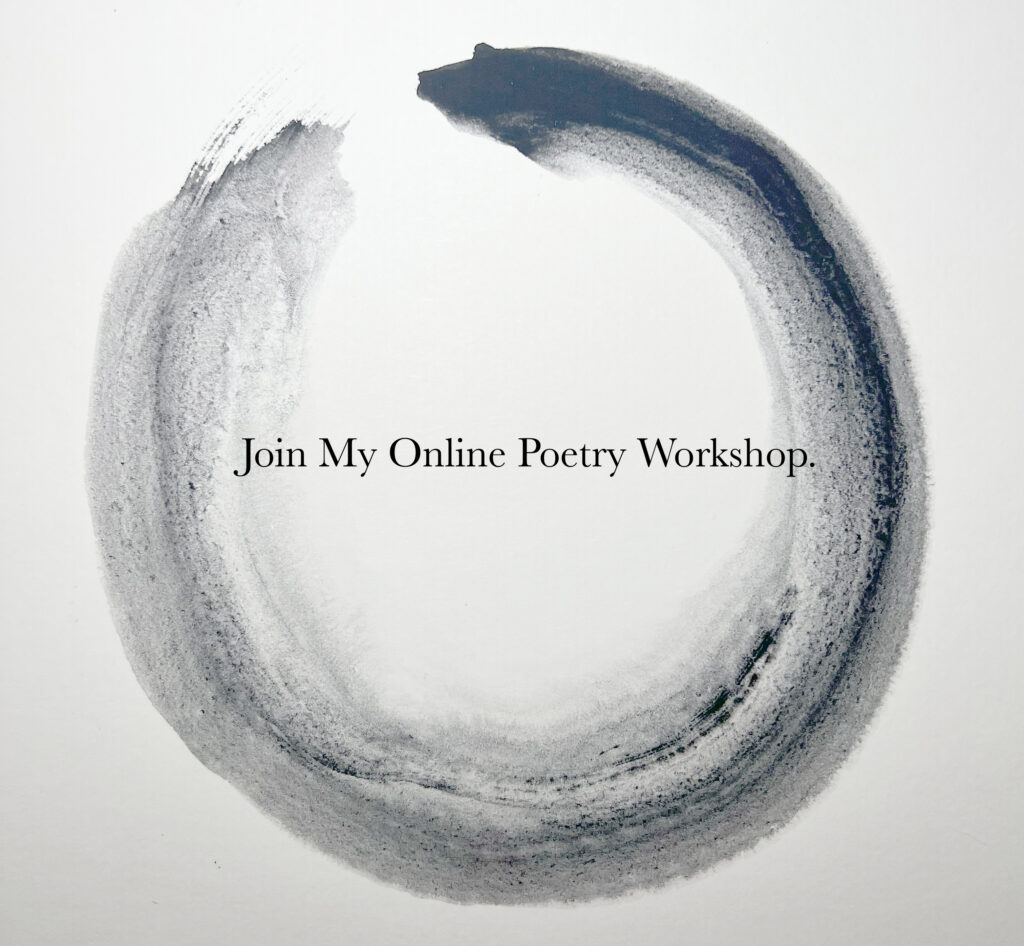Pierre Alex Jeanty’s, HER joins a long tradition of male poets attempting to define the female mind and body, and like the long tradition before him, Jeanty falls short. Reductionistic descriptions of women and the destructive idealization of femininity is as old as poetry itself, but we don’t need to go far back to find examples of this reductionistic idealization of women.
For example, in “She Walks in Beauty Like the Night,” (George Gordon) Lord Byron writes about a woman who joined “all that’s best of dark and bright” in her eyes, behind which lie “pure” thoughts—because forbid she have an impure one! Byron’s woman is “a heart whose love is innocent,” and Jeanty’s woman is the modern version of this–pure by distinction. He writes: “You’re love blooming; / an exceptional woman growing roots / in a field of women who aspire to be / bad girls and heartless savages.” Ouch. I’m curious about how Jeanty’s “bad girls” act. Actually, I’d like to meet some of them. Even better, I wish they’d start writing poetry.
We get a pretty clear picture of who Jeanty’s “Her” really is. She’s been hurt, but open to love. She’s discerning in her selection of men. She’s a good girl who doesn’t forgive easily. She has a big heart, unlike those other women with “small hearts” who “do not leave room for love / once they’ve faced enough trial.” How much is “enough trial”? In a world where women are battered and emotionally abused, in a world where women are deemed unlikable for exhibiting human qualities like anger, what is Jeanty getting at exactly? And don’t you dare mistake her for aggressive! “She’s everything buy crazy. / They’ve mistaken her passion / for aggressiveness.” Let’s remember always that aggression painted differently can be called “assertive.” And assertive women aren’t liked. Oh yes, Jeanty’s woman also loves God.
Jeanty’s woman wants to be liked. Or at least, Jeanty wants to like his woman. I’m not sure which is true because Jeanty fails to lend his muse a psyche of her own, distinct from his. Roxane Gay writes that “in literature, as in life, the rules are all too often different for girls.” We tolerate unlikable men, but unlikeable women are exorcised. Gay makes the argument that unlikeable women are basically human, and Jeanty’s “Her” comes across as anything but human. “Her” is a caricature at best.
Jeanty can be incredibly patronizing, to the point of denigrating. About “Her” he writes: “She can be difficult. / There are times her words / will be heavy with stubbornness, / her tongue will be sharper than a new / sword, and her attitude like that of a two-year old.” Being called a two year old isn’t praise. It’s insulting. This is not a new theme in poetry. William Shakespeare reminded us that his “mistress’ eyes are nothing like the sun.” Jeanty is a little more literal. His woman is “a poetry book. / You must read every letter / and digest every word.” Jeanty is at his most harmless in comparing his “Her” to a bad poetry book. To his credit, Jeanty returns to Shakespeare a few times, but misses the mark, going quite literal with, “The sunset cannot compare, dear.”
Roxane Gay wrote beautifully about our need for literary women to be “likeable” in her stunning essay “Not Here to Make Friends” from her book Bad Feminist. About her own supposed “unlikability” she writes: “I was being honest (admittedly, without tact), and I was being human. It is either a blessing or a curse that those are rarely likeable qualities in women.”
What’s fascinating about Jeanty’s HER is that we see a male mind working through our culture’s misogyny, and it isn’t always pretty. He writes about waiting for a woman’s forgiveness: “To demand that she acts like (sic) / it didn’t hurt / and put it easily in the past, / is to ask her to be a robot, / rather than a human who feels.” To quote Gay, “an unlikable woman embodies any number of unpleasing but entirely human characteristics.” I wish Jeanty’s Her would be read by teenage boys if only to hammer in the line that women are not robots, that the female body isn’t a place where they can project their desires whenever they wish. Sadly, I fear that Jeanty’s main audience is women.

Jeanty’s “Her” wants a man to make her his world. In Jeanty’s poetic world, a single woman is just waiting “until someone / comes to fulfill that position.” He cautions women against “treating boyfriends as princes” encouraging them to wait for a “husband.” After all, Jeanty reminds his woman that most men won’t want “your heart, / they are merely auditioning for other parts of you.” Forget sexual liberation or owning one’s own sexuality. Jeanty’s “Her” isn’t allowed to open her body without opening her heart, lest she be classed as another “heartless savage.” Let’s be clear, women’s bodies are their own and they can open up whatever they damn well please–heart or otherwise.
The problem with this kind of poetry is that it is so prescriptive as to be outright destructive. Though I have to admit I laughed out loud at this stanza: “She isn’t meant / to be handled / with caution, / but to be loved hard.” Perhaps Jeanty’s “Her” isn’t above some light BDSM? I don’t think he meant that line to be read metaphorically. This is problematic given that this is supposed to be a poetry book. When metaphors do arrive, they are cliché. Here’s a gem: “She is / the same as wine; / without patience, / you will never / see how much better / she gets with time.”
But then again, some of the best poetry thrives in paradox, and Jeanty has a few. Take this one: “She shouldn’t have to/ change to be a recipient/ of your love. / Only ask her to be yours, and / be by her side as she changes.” These moments come across as fumbles, not intentionally complex.
The best couplet in the whole book is this one: “She stays in shape because she is in love / with being a well-rounded person.” I’m a sucker for good puns, even in a bad book.
The gender roles presented in HER are problematic because they assume that the highest aim of a good woman is to be loved by a man. If this is the poetry that resonates most with women, then our culture still has a lot of work to do. If you’re looking for a good poem written by a man trying to write about a woman, and getting it wrong, but still killing, try Dante’s Divine Comedy or the Vita Nuova instead. A poet needs to do some hard introspection before trying to characterize anyone else. Dante surely does. Jeanty’s HER is missing that introspective spark, and therefore destructively falls flat.

About the Writer
Janice Greenwood is a writer, surfer, and poet. She holds an M.F.A. in poetry and creative writing from Columbia University.
